All Stories
-
 Planetary Science
Planetary ScienceOSIRIS-REx snaps first images of asteroid Bennu
OSIRIS-REx got its first glimpse of near-Earth asteroid Bennu. The probe will collect a sample from the asteroid and return it to Earth.
-
 Astronomy
AstronomyStrange gamma rays from the sun may help decipher its magnetic fields
The sun spits out more and weirder gamma rays than anyone expected, which could give a new view of the sun’s magnetic fields.
-
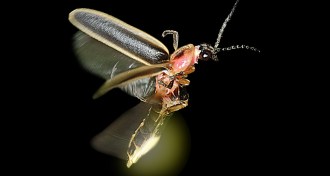 Animals
AnimalsThere’s method in a firefly’s flashes
Fireflies use their flashing lights for mating and maybe even to ward away predators.
-
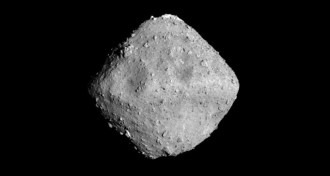 Planetary Science
Planetary ScienceHere’s where the Hayabusa2 spacecraft will land on the asteroid Ryugu
Japan’s Hayabusa2 probe and its landers will touch down on the asteroid Ryugu in the next few months to pick up dust samples and return them to Earth.
-
 Chemistry
ChemistryLithium-oxygen batteries are getting an energy boost
A new version of the lithium-oxygen battery could pack more energy and last longer than its predecessors.
-
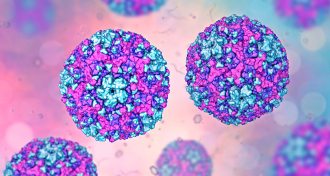 Life
LifeWe may now know when hand, foot and mouth disease outbreaks will occur
Birthrates and immunity rates predict the spread of viruses that cause hand, foot and mouth disease.
-
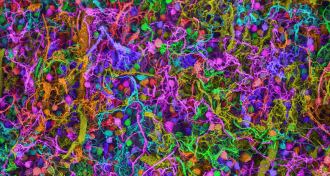 Neuroscience
NeuroscienceHow antibodies attack the brain and muddle memory
Human antibodies that target key brain proteins cause memory trouble when delivered into mice’s brains.
-
 Quantum Physics
Quantum PhysicsA new quantum device defies the concepts of ‘before’ and ‘after’
Two events can happen in different orders at the same time, thanks to quantum physics.
-
 Climate
ClimateChances of an Atlantic hurricane season busier than 2005’s are slim — for now
The 28 named tropical storms that swirled through the Atlantic Ocean in 2005 is about as many as the region can produce in a year.
-
 Health & Medicine
Health & MedicineAir pollution is shaving a year off our average life expectancy
The first country-by-country look at how dirty air affects when we die shows it can have more impact on mortality than breast or lung cancer.
By Katy Daigle -
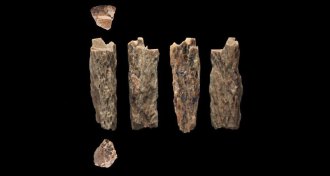 Humans
HumansMeet the first known child of a Neandertal and a Denisovan
DNA analysis of a bone fragment reveals Neandertal movements between Siberia and western Europe.
-
 Earth
EarthScientists create a mineral in the lab that captures carbon dioxide
Magnesite takes a long time to form in nature. Now, a team has found a way to speed up the making of the mineral, which can store carbon dioxide.